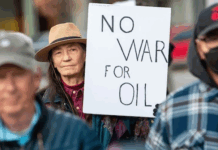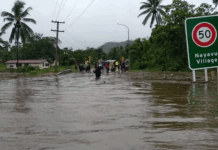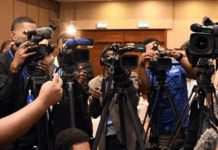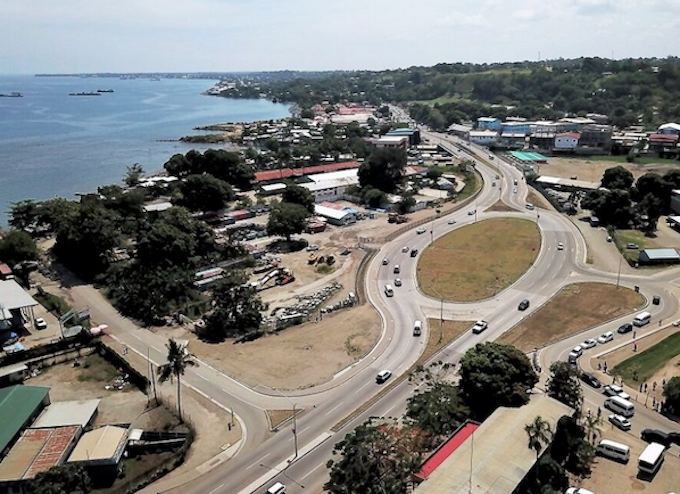
By Mar-Vic Cagurangan in Tumon, Guam
The United States would “respond” if China takes steps to establish a permanent military presence in the Solomon Islands, says a US official, noting the “potential regional security implications” of a newly signed pact between the two countries.
“We outlined clear areas of concern with respect to the purpose and scope of the agreement,” Daniel Kritenbrink, Assistant Secretary of the State Department’s Bureau of East Asian and Pacific Affairs, said at a press briefing yesterday following his trip to Honiara, where he led a US delegation last week.
US officials met with Prime Minister Manasseh Sogavare and his cabinet following separate announcements by China and the Solomon Islands that the controversial Security Cooperation Agreement has been signed.
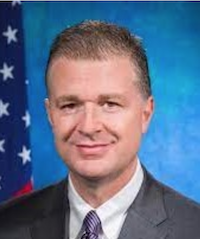
However, the State Department official did not provide a clear answer when asked to explain how exactly the US would respond.
“I’m not going to speculate on what that may or may not involve, but I think our goal was to be very clear in that regard,” Kritenbrink said.
“I’m not in a position to talk about what the United States may or may not do in such a situation.”
US still worried
Despite Sogavare’s repeated assurance that the pact was intended only for domestic implementation, Kritenbrink said the US is worried about the “potential regional security implications of the agreement, not just for ourselves, but for allies and partners across the region.”
Kritenbrink said what troubled the US was “the complete lack of transparency” behind the pact.
“What precisely are the motivations behind the agreement? What exactly are China’s objectives and the like?
“I think they’re completely unclear because this agreement has not been scrutinised or reviewed or subject to any kind of consultation or approval process by anyone else,” Kritenbrink said.
He linked the Solomons-China agreement to Beijing’s relentless bid to expand the People’s Liberation Army’s footprint in the region.
“I think it’s important in this context to keep in mind that we do know that [China] is seeking to establish a more robust overseas logistics and basing infrastructure that would allow the PLA to project and sustain military power at greater distances,” Kritenbrink said.
He added that the US “would follow developments closely in consultation with regional partners.”
Opening US embassy plans
Kritenbrink was accompanied by Kurt Campbell, Indo-Pacific coordinator for the National Security Council; Lieutenant-General Steve Sklenka,deputy commander of the Indo-Pacific Command; and Craig Hart, USAID’s acting senior deputy assistant administrator for Asia.
During the visit, the US delegation announced Washington’s intention to expedite the process of opening a US embassy in Honiara, strengthen the ties between the US and the Solomon Islands.
“Our purpose in going to the Solomons was to explain to our friends there our approach to the region and the steps we’re taking to step up our engagement across the Pacific Islands, the specific programmes and activities that are ongoing in the Solomons and that we expect to expand and accelerate in the months ahead,” Kritenbrink said.
“We reiterated our commitment to enhancing our partnership with the Solomon Islands, including expediting the opening of the US embassy there, advancing cooperation on addressing unexploded ordnance, and increasing maritime domain awareness, as well as expanding cooperation on climate change, health, people-to-people ties, and other issues as well,” he added.
Mar-Vic Cagurangan is chief editor and publisher of the Pacific Island Times. Republished with permission.






